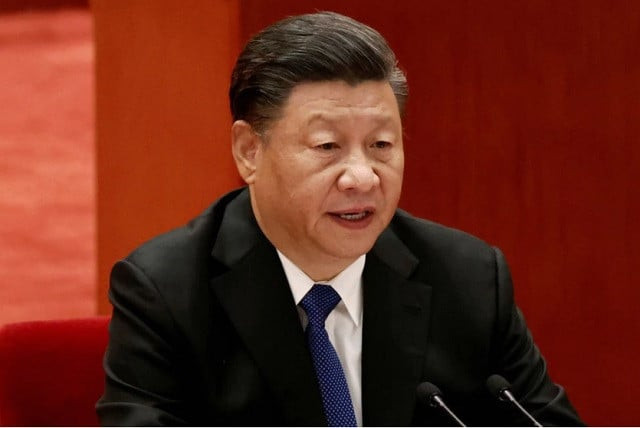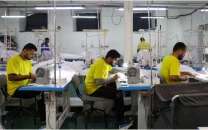China stresses right to 'subsistence and development,' warns against foreign models
President Xi holds virtual meeting with visiting UN human rights chief, urges respect to nations’ homegrown paths

The “right to subsistence and development" are “primary human rights” of the developing world, but attempts to impose rights models from outside could be “disastrous,” China’s president told the UN human rights chief on Wednesday.
In a video chat, Xi Jinping told Michelle Bachelet that mutual respect and equality will form a basis to “actively conduct human rights dialogue.”
On a weeklong visit to China through Saturday, Bachelet is set to meet several high-level officials at the national and local levels.
“More efforts are needed to achieve development of higher quality, efficiency, equity, sustainability and security, so as to provide strong safeguards for the advancement of human rights,” said Xi.
On China’s human rights development in the “context of China’s history and culture,” Xi said different countries’ “paths of human rights development” should be respected.
Also read: 'No room for compromise' on Taiwan, China tells US
“Human rights have historical, specific and practical contexts,” he added.
“With different national conditions, histories, cultures, social systems and levels of economic and social development, countries should and can only explore suitable paths of human rights development in light of national realities and people’s needs,” he said.
However, in remarks seemingly aimed at Beijing’s critics, Xi said any system or model “blindly copied from another country regardless of the situation on the ground will not only look out of place, but also bring disastrous consequences.”
‘Equality, mutual respect’
As Bachelet landed in China, where she is set to visit Kashgar and Urumqi, northwestern cities with large populations of the Uyghur community, global rights defenders urged the UN human rights chief to “address crimes against humanity and gross human rights violations” when her team visits Xinjiang this week.
The cities of Kashgar and Urumqi are located in the Xinjiang autonomous region, which is home to ethnic Uyghurs.
China has been accused of ethnic cleansing of Uyghurs in Xinjiang. Beijing has denied any wrongdoing, calling the allegations “lies.”
Xi said China has “successfully found a path of human rights development in keeping with the trend of the times and China’s national reality.”
Also read: Beijing says US-backed Asia plan seeks to 'decouple' countries from China
“We have been advancing whole-process people’s democracy, promoting legal safeguard for human rights and upholding social equity and justice,” he said.
Xi said China is “ready to actively conduct human rights dialogue and cooperation with all other parties to expand common understanding, reduce differences, promote mutual learning, seek progress together, and jointly advance the international human rights cause for the greater benefit of people across the world.”
He said China will continue to support the UN “in making positive efforts for the international human rights cause.”
According to the Chinese Foreign Ministry, Bachelet “expressed admiration for China’s efforts and achievements in eliminating poverty, protecting human rights and realising economic and social development, and commended China’s important role in upholding multilateralism, confronting global challenges such as climate change, and promoting sustainable development across the world.”
Bachalet’s office would like to “enhance communication and explore cooperation with the Chinese side to make joint efforts for the progress of the global human rights cause,” the ministry added.



















COMMENTS
Comments are moderated and generally will be posted if they are on-topic and not abusive.
For more information, please see our Comments FAQ